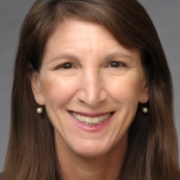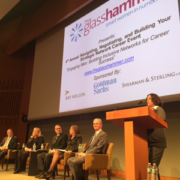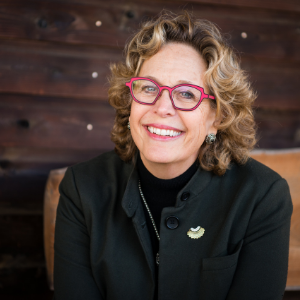International Women’s Day 2018: Time’s Up For Change
By Aimee Hansen
“This year, International Women’s Day comes on the heels of unprecedented global movement for women’s rights, equality and justice” states unwomen.org.
The United Nations notes that across the globe, viral advocacy echoed the collective rising of women’s voices in the #MeToo movement to highlight further injustices affecting women, including pay inequality and political representation.
As more women spoke out, the issues affecting women spilled over into the social, corporate and political discourse. In fact, sexual harassment even became an official discussion topic at the World Economic Forum, an unprecedented occurrence.
The selected themes of IWD 2018 send a clear message: We have energetic momentum towards change and equality. It’s time to put that energetic momentum into action.
From Momentum To Action
#MeToo, in its broadest social implication, was about even more than women standing up to sexual harassment and abuse by saying it has affected their lives, too.
It was about bringing the reality of hushed and hidden aggressions against women out into the public discourse – where they can no longer remain denied nor trivialized nor marginalized.
With #MeToo, the conversation became both personal and public, all at once. It echoed through both our homes and our institutions, even if it was somewhat bound to the voices who had the “privilege” of feeling safe enough to speak.
By November 2017, #MeToo was tweeted 2.3 million times across 85 countries. The rising of women’s voices and experiences struck a deep chord in the collective consciousness. With the question of the validity and vastness of the problem widely evidenced, we can focus on how we address change – as individuals, as groups, as society.
International Women’s Day is seeking to take that momentum and extend the reach of both women’s issues covered and women addressed, with urgency:
The International Women’s Day website announced the theme #PressforProgress. building on the strong global momentum for gender parity evidenced by #MeToo and #TimesUp. While the UN theme for International Women’s Day 2018 is “Time is Now: Rural and urban activists transforming women’s lives”.
As stated on unwomen.org, “International Women’s Day 2018 is an opportunity to transform this momentum into action, to empower women in all settings, rural and urban, and celebrate the activists who are working relentlessly to claim women’s rights and realize their full potential.”
From Urban To Rural
UN global efforts for International Women’s Day will focus on women in rural areas, who experience more drastic gaps of inequality than urban women: “less than 20 per cent of landholders worldwide are women, and while the global pay gap between men and women stand at 23 per cent, in rural areas, it can be as high as 40 per cent. They lack infrastructure and services, decent work and social protection, and are left more vulnerable to the effects of climate change.”
This greater rural wage gap is not unlike the greater race and ethnicity wage gap in the U.S., as last year UN Women Executive Director Phumzile Mlambo-Ngcuka wrote: “the average gender wage gap is 23 per cent but this rises to 40 per cent for African American women in the United States.”
For global progress towards gender parity, moving towards Sustainable Development Goals means urgent action for rural women – action for an adequate standard of living, freedom from violence and harm, access to land and productive assets, food security, decent work, education, health and sexual and reproductive health rights.
From Hollywood Stars To Low-Wage Workers
Two months after #MeToo, Time’s Up (#TimesUp) was spearheaded by over 300 women in Hollywood. Time’s Up is a leaderless, collective movement (run by volunteers and made up of working groups) to counter systemic sexual harassment and sexism in the workplace across all industries.
The movement emphasizes providing legislative and legal resources and support to those women in low-wage industries who face harassment without the resources to effectively speak out and oppose it.
This was in part catalyzed by a letter from 700,000 female farm workers who responded to #MeToo with their solidarity, while expressing the challenges of working “in the shadows” with “too much at risk” to expose sexual harassment, including worries about feeding their families.
An open letter addressed to “Dear Sisters” and signed “In Solidarity” includes the statement: “The struggle for women to break in, to rise up the ranks and to simply be heard and acknowledged in male-dominated workplaces must end; time’s up on this impenetrable monopoly.”
As written by Megan Garber in The Atlantic, “While the former (#MeToo) has, thus far, largely emphasized the personal and the anecdotal, #TimesUp—objective in subject, inclusive of verb, suggestive of action—embraces the political. It attempts to expand the fight against sexual harassment, and the workplace inequality that has allowed it to flourish for so long, beyond the realm of the individual story, the individual reality.”
#TimesUp will challenge workplace sexism “through legal recourse”, “through improved representation in board rooms and beyond”, and “through the changing of norms.”
Among the initiatives are a legal defense fund supported by a GoFundMe effort ($21 million at the time of writing) to protect women in low-wage industries from sexual misconduct and the potential fallouts from reporting it by enabling the resources of legal representation.
It also includes plans for legislation to penalize companies that allow harassment to persist and to discourage the use of nondisclosure agreements that silence victims.
The homepage states, “No more silence. No more waiting. No more tolerance for discrimination, harassment or abuse.”
What You Can Do
International Women’s Day is both a celebration of women’s achievements and a collective call to work together towards gender parity. This year, women can stand in our power of glimpsing more of what is possible when we add our collective voices in solidarity against oppression.
If you wish to further advance gender equality for women who may not have the same resources through #TimesUp, consider donating to Time’s Up Legal Defense Fund, or one of the many organizations that work with rural women across the globe for greater equality.
The Time’s Up mission statement also encourages women in positions of leadership to recognize their power in providing opportunities for other women:
“Acknowledge that talent is equally distributed, but work and career opportunities are not. Mentor someone from an underrepresented group in your industry. If you are in a position to do so, hire someone who can diversify the perspectives included in your organization; your team will be better and stronger for it.”
As demonstrated by the movements of women’s voices that have echoed through these past six months, the voice and actions of each woman matters on a day intended for all women.












